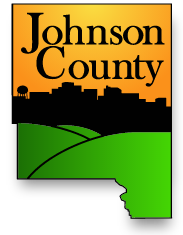Most residential and commercial properties will see large increases in assessed value. These increases represent the market changes that have occurred during calendar year 2022. The market is determined by what buyers are paying for properties. New construction or major remodeling would add value over and above the market value changes.
The 2023 statewide average valuation increase for residential property is estimated to be 22%. Your value increase could be more or less than that based on your local market.
The first question people usually ask is, “Will my taxes go up 22% because my value went up 22%?” The answer to that is no, it will not. There are three ingredients for calculating taxes and they are assessed value, assessment limitation (formerly known as Rollback) and levy rates. You are receiving the first one of these today, your assessed value. The assessment limitation was initiated in the late 1970’s by the Iowa legislature to help counter inflation. The Department of Revenue calculates this number by November every year. The purpose is to limit growth in residential property value to 3% across the state. Since we are seeing a statewide average increase of approximately 22% in residential property, the assessment limitation will be lowered to limit overall growth to 3%. The levy rate is a consolidated rate based on the budgets of local taxing bodies like cities or townships, schools and counties.
Here is an example of a property over the last three years that illustrates how changes in value and assessment limitation affect your tax bill:
|
|
2021 |
2022 |
2023 |
|
Assessed Value |
$200,000 |
$200,000 |
$244,000 |
|
Assessment Limitation |
X 0.541302 |
X 0.564919 |
X 0.477125* |
|
Taxable Value |
= $108.260 |
= $112,984 |
= $116,419 |
|
Levy Rate |
X 0.0375 |
X 0.0375 |
X 0.0375* |
|
Taxes |
= $4,060 |
= $4,237 |
= $4,365 |
From 2021 to 2022, the value and levy rate did not change, but the assessment limitation did. This resulted in an increase in taxes of 4.35%. In 2023, the value increased 22% and the levy rate remained the same, but the assessment limitation was lowered to limit statewide growth to 3%. This 22% increase in value resulted in an increase in taxes of 3%.
*Keep in mind in this example, the assessment limitation is just an estimate and that the levy rates did not change and the actual rates will come out in March of 2024.
Iowa Code states that residential and commercial property must be valued at market value in odd numbered years. This will be happening throughout the state in 2023. If an assessor does not change values to meet the current market and the data shows that they should have, the Department of Revenue will automatically increase them. We adjusted values based on sales ratio studies by market area throughout the county, with some properties receiving more than 22%, and some less than 22%, based on the sales in that market. Market can be defined by a neighborhood, township, city, or even the county depending on the property. If an assessor does not make these changes, the Department of Revenue will apply an across the board increase for all properties in that class. This is not fair for those areas that did not need that much of an increase.
The assessment limitation is a calculation that will keep residential taxable value growth to a 3% increase on a statewide level. This 3% does not apply to individual properties, specific areas, towns or even counties. If your assessment changed more than the statewide average of 22%, your taxable value will increase more than 3%.
The levy rate is the final piece in determining your taxes. If there is an increase in taxable value for a taxing body due to revaluation and they do not change their levy rate, they will see an increase in dollars received. If a taxing body lowers their levy rate after seeing an increase in taxable value, your taxes may still increase, but not as much.
If you disagree with your new assessed value and do not think you could sell your house for that price in today’s real estate market, you have two options:
- Between April 2 – 25, you may contact our office for an informal review of your property. If we can agree on a new value, we can change that for you by having both of us sign an agreement. This signed agreement must be returned to our office by April 25.
- Between April 2 – 30, you can file an appeal to the Board of Review. The Board is a panel of three people unaffiliated with the Assessor’s office. You will be given the opportunity to provide information either in writing or in person explaining why you think your property is not valued correctly. You can:
- Apply online at http://Johnson-IA-assessor.org
- Download blank Petition to the Board of Review form from our website, or you can find the form on the Department of Revenue website
- Pick up a blank form at out office Monday - Friday 8:00 am – 4:00 pm.
If you have any further questions about your assessment, feel free to contact our office:
319-356-6078
